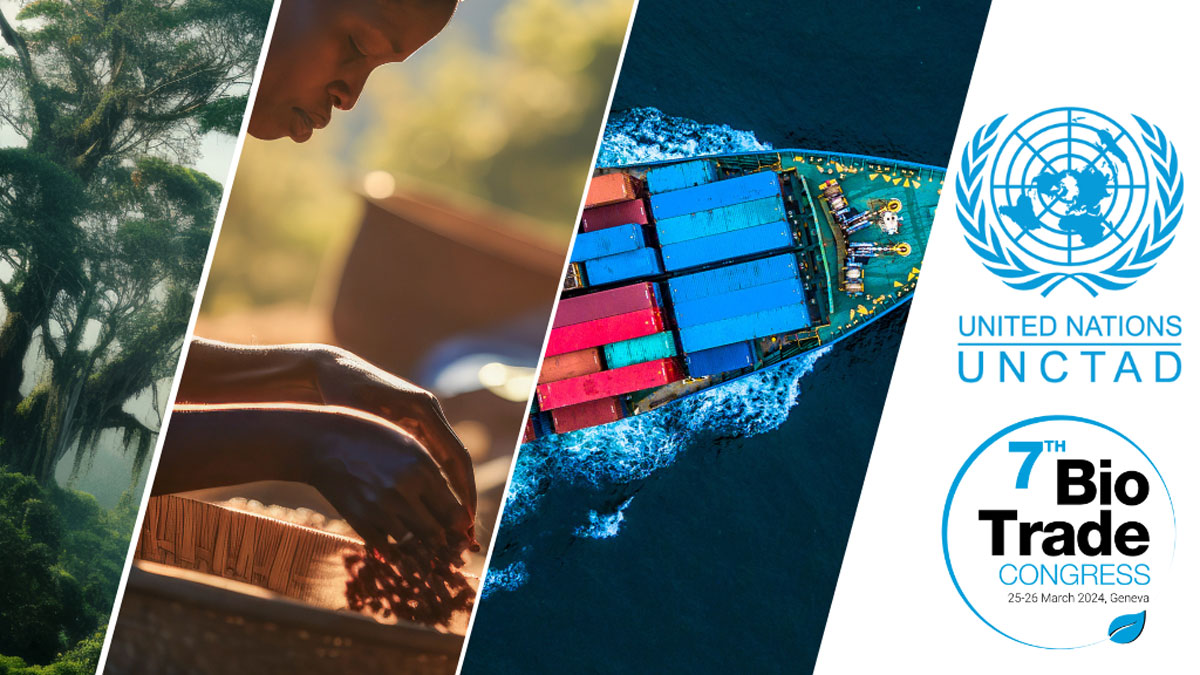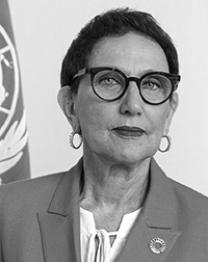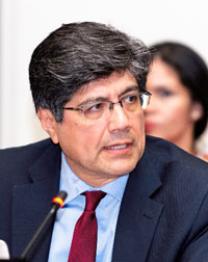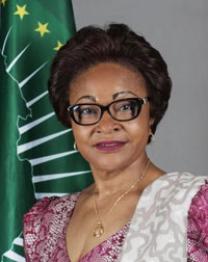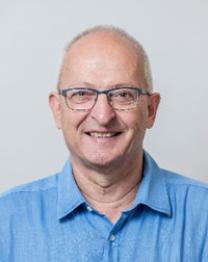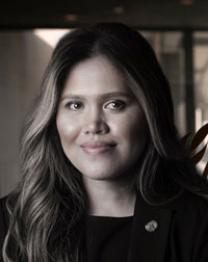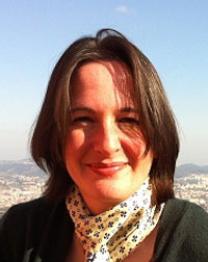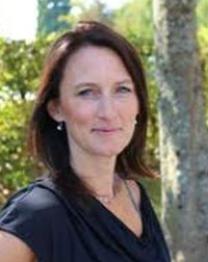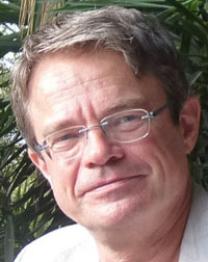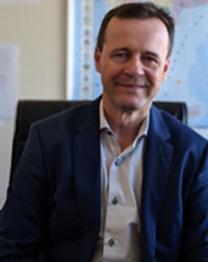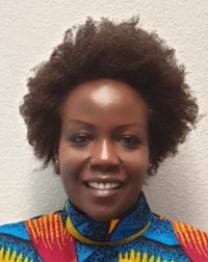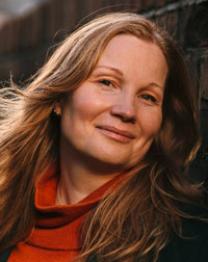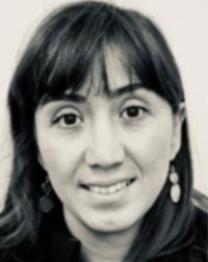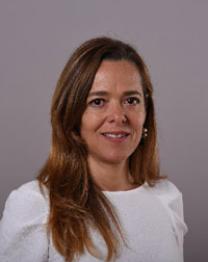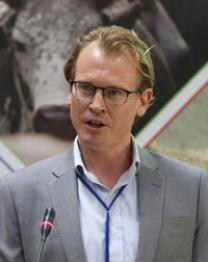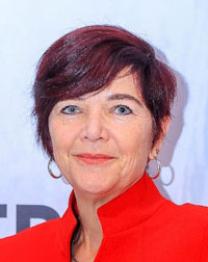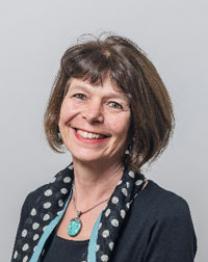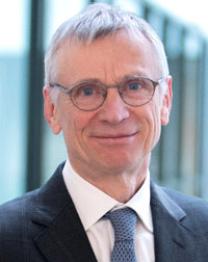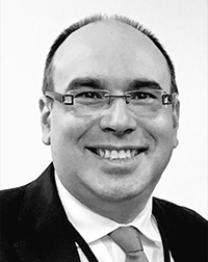The BioTrade Congress returns on 25 and 26 March 2024 in Geneva, Switzerland at the Palais des Nations (Room XVII), co-organized by the United Nations Conference on Trade and Development (UNCTAD) and partners. The Congress is a global gathering of trade and biodiversity experts and practitioners for a high-level exchange on key links between trade and biodiversity.
Biodiversity is an indispensable asset for Earth that provides essential resources to the livelihood of humankind. More than half the world’s population – over 4.3 billion people – depends on biodiversity for their livelihoods, with 70% of the world’s poor and vulnerable living in rural areas depending directly on it. Up to 40% of world’s land is degraded, one million plant and animal species are at risk of extinction, and biodiversity loss is projected to accelerate through 2050.
Global action to conserve and sustainably use biodiversity has been reflected in goals and targets such as in the Kunming-Montreal Global Biodiversity Framework (The Biodiversity Plan), as well as the United Nations Sustainable Development Goals (SDGs).
Trade is an indispensable component of national economies involving businesses, societies, and biodiversity. When trade is done sustainably, traceably and legally it can be a positive incentive for the conservation and sustainable use of biodiversity and promote benefit sharing among all actors in the chain. More than half (55%) of the world’s gross domestic product (GDP), equivalent to an estimated $58 trillion, is moderately or highly dependent on nature. Also, more than half of the market capitalization listed on 19 of the world’s largest stock exchanges is exposed to material nature risks. However, while most of the world’s top 500 companies have a climate target, only 5% have one for biodiversity.
Objective
The 7th BioTrade Congress will discuss “Global Governance for Trade and Biodiversity” with the aim to propose policy recommendations and actions from government, business and civil society on how trade and trade policy can accelerate implementation of The Biodiversity Plan. The Congress will also feature exchanges and case studies on the biodiversity and socio-economic impact generated through the trade of biodiversity-based products, including BioTrade.
This event is part of the activities planned by UNCTAD and partners towards the 16th meeting of the Conference of the Parties (COP 16) to the Convention on Biological Diversity (CBD), as well as UNCTAD’s 60th anniversary and its 16th quadrennial Ministerial Conference in 2025. The outcome of this Congress will also support the implementation of UNCTAD’s Bridgetown Covenant, The Biodiversity Plan and the SDGs.
Topics at the Congress will include:
- Mainstreaming biodiversity into trade discussions and processes
- Trade, The Biodiversity Plan and National Biodiversity Strategies and Action Plans
- Trade and biodiversity: case studies in equity and innovation
- Benefits of the blue economy – the seaweeds value chain
- The future of BioTrade: reflections and impacts at the national and regional levels
- Updates, special reports, and more
How to participate
The Congress will take place in person at the Palais des Nations (Room XVII) in Geneva, Switzerland on 25 and 26 March 2024. Register here.
- Sessions on 25 March will take place from 10:00 – 18:00 CET, with a networking cocktail beginning at 18:30
- Sessions on 26 March will take place from 9:30 – 17:30 CET.
Virtual attendance is also possible. Participants can register to watch the plenary sessions via Webex.
Target audience
- Government agencies working in the areas of trade, environment, biodiversity, and development
- Experts and practitioners in the areas of trade, environment, biodiversity and development
- United Nations agencies, NGOs, development agencies and other international organization working on biodiversity, sustainable development, climate change, and trade projects.
- BioTrade and biodiversity-based companies
- Cooperatives, social enterprises and associations
- Business associations, chambers of commerce
- Academia
UNCTAD and partners are co-organizing the 7th BioTrade Congress under the Global BioTrade programme: Linking trade, biodiversity and sustainable development. This programme was launched by UNCTAD in 2018 with the support of the Swiss Secretariat for Economic Affairs SECO.
Rebeca Grynspan, of Costa Rica, became UNCTAD's eighth Secretary-General on 13 September 2021 and is the first woman to lead the organization.
Prior to her UNCTAD appointment, she was the Ibero-American secretary-general from 2014 to 2021, also the first woman to head the organization. During her mandate, she has coordinated the 22-member Iberoamerican Conference and led four key summits of Heads of State and Government.
In 2010 she was appointed Under-Secretary-General of the United Nations and Associate Administrator of the United Nations Development Program (UNDP) and prior to that was UNDP Regional Director for Latin America and the Caribbean.
Prior to joining the United Nations, Ms. Grynspan served as Vice-President of Costa Rica from 1994 to 1998. She was also Minister of Housing, Minister Coordinator of Economic and Social Affairs, and Deputy Minister of Finance. In 2021 she was named Special International Advisor to the newly created Economic and Social Council of Argentina and invited to join as member of the G20 High-Level Independent Panel on Financing the Global Commons for Pandemic Preparedness and Response.
In addition to her experience as a lecturer and advisor to several international organizations, she has been actively involved in key United Nations initiatives, such as the Millennium Project's Task Force on Poverty and Economic Development and the High-level Panel on Financing for Development.
In 2014 and 2015, she was recognized as one of the 50 leading intellectuals of Latin America. And she was recognized as one of the 100 most powerful women in Central America by Forbes magazine.
Ms Grynspan holds a degree in Economics by the University of Costa Rica and a MSc in Economics by the University of Sussex. She has been awarded a Doctorate Honoris Causa by the University of Salamanca, the University of Extremadura and the European University of Madrid in recognition of her outstanding professional achievements.
Dr. Alue Dohong obtained a PhD degree in Environmental Management from Queensland University, Australia in 2016.
Before resuming his post as the Vice Minister of Environment and Forestry in October 2019, he was the Deputy for Construction, Operation and Maintenance at the Peatland Restoration Agency.
Since 1994 Dr. Alue Dohong was a lecturer at Palangkaraya University, Central Kalimantan. He has been serving as consultant/advisor and research associate of a number of national and international organizations/initiatives working on peatlands, especially in Central Kalimantan. He is also a member of Society of Ecological Restoration since 2017 and Steering Committee of Global Peatland Initiative.
In 2007, Dr. Alue Dohong was awarded the Wetlands International President’s Medal for Staff Excellence, in providing outstanding leadership in Wetland Management and for developing relationship with and encouraging the involvement of local stakeholders. In 2021, he was awarded the Australia Awards Indonesia Alumnus of the Year in recognition of his leadership and ongoing commitment to environmental sustainability in Indonesia. After that, in 2022, he was awarded the International Alumnus of the Year for outstanding contributions to the protection of threatened ecosystems.
H. E. Mr. Gustavo Gallón. Ambassador of Colombia to the United Nations in Geneva since December 2022.
Lawyer from the Universidad Externado de Colombia, specialized in Public Law, with a Master's Degree in Political Science (University of París 1) and postgraduate studies in Political Sociology (Ecole des Hautes Etudes en Sciences Sociales de París). Director and founder of the Colombian Commission ofJurists (1988–2022).
He was Independent Expert ofthe United Nations Human Rights Council on Haití (2013–2017) and Special Representative of the United Nations Commission on Human Rights for Equatorial Guinea (1999–2002). Judge of the Constitutional Court (1993 and 2009). Columnist at newspaper El Espectador (Bogotá, 2010–2023). Professor of Public Law and Human Rights at various universities in Colombia (since 1979: Externado, Los Andes, Nacional and Javeriana) and visiting researcher at the Kellogg Institute of the University of Notre Dame (Indiana, United States, January 1998-May 1999).
Researcher at the Think tank Centro de Investigación y Educación Popular -Cinep- (1981–1989). Founder and director ofthe magazine Cien Días vistos por Cinep (1988). Author and editor of several publications on human rights and the State in Colombia, such as "Quince años de estado de sitio en Colombia: 1958–1978" (1979), and "Desafiando la intransigencia" (2013), among others.
Ambassador Nella Pepe Tavita-Levy is the Permanent Representative of Samoa to the United Nations Office and other International Organisations in Geneva.
Prior to her appointment to Geneva, Ms. Tavita Levy had been working as the Assistant Chief Executive Officer of the Trade Division at the Ministry of Foreign Affairs and Trade of Samoa since April 2016. She was a Counsellor at the Embassy of Samoa in Brussels, Belgium, from November 2012 to March 2016.
Ms. Tavita Levy has represented Samoa in various international forums and negotiations, including support for Samoa’s ministerial representation in international meetings such as the WTO Ministerial Conferences, ACP/EU Council and Trade Ministers, Pacific Forum Leaders, Trade and Economic Ministers meetings, providing policy advice on trade sustainable development and regional initiatives.
Ms. Tavita Levy holds a Master in Business Administration from the University of Newcastle, Australia (2008) and a Bachelor of Commerce and Administration from Victoria University, Wellington, New Zealand (1998). She completed the Certificate of Mastering Trade Policy from the JFK School of Government – Executive Education, Harvard University, Massachusetts, United States (2010).
Ambassador José Valencia, Permanent Representative of Ecuador to the World Trade Organization, UNCTAD and other economic international organizations in Geneva.
Ambassador Jose Valencia has been Permanent Representative to the WTO, UNCTAD, and other international economic organizations since August 2020. He is the current Chairperson of the Committee on Trade and Environment of the WTO. Ambassador Valencia, a career diplomat, was Ecuador's Minister of Foreign Affairs from 2018 to 2020. Previously, he has been Ambassador to South Africa (concurrent to Mozambique and Namibia), delegate observer to the African Union (Addis Ababa), and Permanent Representative to the OAS in Washington, DC. He has also held posts in the Ecuadorian Missions to the UN in New York and Geneva and at the Ministry at the Capital Headquarters.
Ambassador Valencia has a JD degree from the Catholic University of Ecuador. He earned a master's degree in public administration (MPA) from Harvard University and a master's degree in political sciences (MA) from Columbia University (New York), in addition to a Diploma on International Studies from the Diplomatic School of Spain (Madrid).
Jose Valencia has worked as an associate professor in several Ecuadorian universities. He has written and co-authored publications on international humanitarian law, human rights, migration, environmental protection, and other international affairs subjects.
H.E. Madam Josefa Leonel Correia Sacko, an Angolan national, is a leading African Agronomist. She was elected as the new Commissioner for Rural Economy and Agriculture of the African Union Commission during the AU Summit of Head State on January 2017.
Prior to that, She was a Special Adviser to two Ministers in Angola, her home country: the Angolan Minister of Environment where she also served as Ambassador responsible for Climate Change. In the Ministry of Agriculture of the Republic of Angola Amb Sacko oversaw Food Security, Eradication of Hunger and Poverty Reduction.
The former Secretary General of the Inter African Coffee Organization (IACO) for 13 years in Cote D’Ivoire where she represented Coffee economy for 25 African Coffee producing countries. During her tenure, she successfully advocated for the empowerment of small scale coffee farmers across the continent by setting up Regional Centres of Excellence for Capacity Building of Member States, on Genetic Material Conservation, Coffee Quality Improvement and Cup Tasting Liquor in Cote d’Ivoire, Uganda, Cameroon and Zambia.
Amb Sacko is one of the African Women Africa should be proud of, and she has built up her international profile and reputation by working with Regional, Global Institutional on Agriculture and many other sectors supported by World Trade Organization (WTO), African Union (AU), International Coffee Organization (ICO), African Development Bank (AFDB), African Bank for Export and Import (AFREXIMBANK), (FAO), UNECA, NEPAD etc.
The other notable cooperation/partnerships she has worked with include the Regional Economic Communities (RECS), namely, SADC, COMESA, ECOWAS and EAC, where she has actively participated to address the challenges encountered by small scale farmers in Africa, ensuring that they remain a central focus in regional and national policy making for development. Amb Sacko became a Champion 12.3 on reducing food losses and waste in 2018 and in June 2019, she was nominated by António Guterres, Secretary-General of the United Nations, to serve as a member of the Scaling Up Nutrition (SUN) Movement Lead Group. Amb. Sacko speaks fluently Portuguese, French, English, Spanish and Lingala.
Pierre du Plessis has worked on various aspects of sustainable development for more than 30 years, with a specialist focus on access to genetic resources and the fair and equitable sharing of benefits arising from their utilisation.
He was one of Africa’s lead negotiators during the development of the Nagoya Protocol and has frequently represented Namibia and Africa at the CBD, WIPO and FAO.
Since the year 2000 he has been centrally involved in Namibia’s national efforts to promote the sustainable commercialisation of indigenous plant products, integrate such value chains into the national Community-Based Natural Resource Management programme and develop a functional and user-friendly system to regulate Access and Benefit Sharing. Pierre has practical experience at all levels of biotrade value chains, from organising rural raw material supply chains through processing and marketing to national and international policy development.
During the development of the Nagoya Protocol on Access and Benefit Sharing he was one of the lead negotiators for the African Group and co-chaired many of the negotiating sessions. He also compiled Namibia’s first greenhouse gas inventory, served on the Namibian Climate Change Committee for many years and has represented Namibia at international negotiations under the UN Framework Convention on Climate Change, as well as at COP 15 where the Kumming-Montreal Global Biodiversity Framework was adopted in December 2023.
Sandra Averous-Monnery, Economic Officer at WTO, brings her environmental expertise to the Trade and Environment Division of the WTO. She is seconded by the United Nations Environment Programme (UNEP).
She is a development economist by training, and an environmentalist by experience, in the areas of Chemicals and Pollution, Resource Efficiency and Sustainable Consumption and Production, Climate Change and Disaster Preparedness.
She joined UNEP 18 years ago and has been involved since then in international processes and negotiations on SCP, chemicals and waste, and climate change, she led the development of knowledge products, as well as projects portfolio with local and national implementation.
In WTO since September 2023, she works on trade and environmental topics, focusing on trade, as part of the solution to address global environmental challenges of climate change, biodiversity loss and pollution.
Peter Schmidt is Senior Advisor of Agriculture and Food at Helvetas Swiss Intercooperation.
Since 2021, he is managing a multi-country and multi-stakeholder project on water efficiency in rice and cotton on behalf of the Swiss Agency for Development and Cooperation with substantial engagement of private sector partners.
Peter has 30 years professional experience of which 20 years experience with participatory methods in development work in general and in rural extension projects in particular.
He also has extensive experience in leading Participatory Learning and Action projects, Participatory Technology Development processes, Rapid Market Appraisals and Market System Development in various countries (Burkina Faso, Laos, India, Albania, Kyrgyzstan, Bhutan, Switzerland) inclusive facilitating processes to transform generated ideas into concrete action.
Joyce Brandão is a Brazilian socioenvironmental practitioner-researcher, who is currently a PhD candidate at the University of Cambridge (Department of Geography), and part of the Conservation and Development Lab which is led by Professor Rachael Garrett.
Her background is Forestry Engineer (University of São Paulo) and holds a master’s degree in Applied Ecology (University of São Paulo). Joyce has a solid background in rural development and sustainable value chains. During her career, she managed several ground and policy-based innovative projects related to multistakeholder partnerships for socially inclusive climate agriculture, zero deforestation policies and landscape governance in Brazil, and technical collaboration with partners in countries from Latin America (Argentina, Colombia, Paraguay), Africa (Ghana, DRC), Asia (China, Indonesia) and, donors in Europe and the United States. She has worked for several civil society organizations such as WWF-BR and Solidaridad.
Her PhD is focused on understanding how political, economic, and institutional conditions have potentially enabled or constrained forest-focused policies in the agri-food supply chain in the Amazon and Cerrado (Brazilian Savanah) biomes. She aims to contribute to policy-making that supports the rise of transformative and equitable sociobioeconomies.
Jason's goal is to create global standards for producing and using raw materials, particularly in terms of carbon and water.
He has convened industry roundtables of retailers, buyers, producers and environmentalists to reduce the key impacts of producing soy, cotton, sugarcane, salmon, shrimp, mollusks, catfish and tilapia.
Jason ran a family farm, taught at Harvard and Yale, worked at the US Department of Agriculture, and spent more than 25 years working with human rights and environmental organizations before joining WWF in 1999.
As manager of Nedspice’s farmer partnership programme, Christiaan emphasizes the importance of sustainable farming practices and the support for smallholder pepper farmers, to enable them to earn a fair income.
Starting as data analyst for Nedspice four years ago, Christiaan learned about the importance of research to make meaningful change in the spice supply chain. Working alongside various stakeholders and placing sustainability insights in a broader perspective is fundamental to have a positive impact.
In addition to his work for Nedspice, he is finalizing his PhD in Marine Biology at Wageningen University & Research.
Maria Durleva is an international development lawyer specialising in sustainable trade of marine and terrestrial biodiversity-based products, having worked at UNCTAD’s BioTrade Initiative and the Ocean Economy and Fisheries Programme for seven years.
As a trade and biodiversity expert/programme management professional at UNCTAD, Maria has worked on a range of issues on sustainable development, and climate and trade-related aspects of sustainable use of biodiversity. She has also worked on regional projects in Latin America and the Caribbean, the European Union and ASEAN.
Maria is a trained lawyer who was born and raised in Metro Manila, Philippines. She holds a Bachelor of Arts (BA) degree from the University of the Philippines-Diliman and a Master of Laws (LLM) in International Commercial Law: Dispute Resolution and Intellectual Property from the University of Law in London, United Kingdom. She has recently completed her sustainability leadership training programme at the University of Cambridge, in the United Kingdom.
Nichola Dyer, Senior Advisor to the Global Seaweed Coalition, brings experience across multilateral institutions and the public, private, academic, and non-profit sectors to her sustainability work.
She has designed and led strategic global initiatives across a wide range of sectors and themes, including seaweed and aquaculture, food systems and food security, governance, and engagement of marginalized and vulnerable groups. Currently, she serves on the Advisory Board of GlobalSeaweed-SUPERSTAR and several other non-profits and chairs an education grant program for women from developing countries.
During 26 years of World Bank Group service, Nichola managed the $1.5b Global Agriculture and Food Security Program, developed greenfield operational engagements on excluded minorities and disability, led the ethics office, and established the Gabon office.
She obtained her MSc in Economics at the University of Illinois at Urbana-Champaign.
Hoa Doan is a climate policy expert with experience in consulting, public sectors (NHS and No10 Downing Street) and entrepreneurship.
She was a Net Zero policy advisor in the Prime Minister’s Office at No10, overseeing the delivery of decarbonisation programs across the building and transport sectors. Hoa was shortlisted for the 2023 Forbes 30 Under 30 Europe list in the Social Impact category for her contribution to the UK climate policy agenda.
She is currently the Head of Impact and Sustainability at Notpla, an UK-startup that recently won The Earthshot Prize for its plastic-free consumer packaging products made from seaweed and plants.
Lara Koritzke is Director of Communications & Marketing at the Union for Ethical BioTrade (UEBT) where she leads efforts to build awareness of UEBT and the work of its member companies to ethically source ingredients from biodiversity.
She joined the organisation in 2018 with more than 15 years of experience in global sustainability programmes. This includes six years as director of communications and development at ISEAL Alliance, the global membership organisation for ambitious sustainability systems.
Prior to that, she was with Rainforest Alliance for eleven years as their director of institutional relations, working on program development and partnerships for sustainable agriculture and forestry in Asia, Africa and Latin America.
She holds degrees from Yale University and the Cambridge University Sustainability Leadership Programme where she focused on partnership dynamics between environmental groups and companies.
For several years Lara served as a faculty member of the Kinship Conservation Fellows, where she delivered annual lectures on certification and sustainability standards. She is based in Toronto.
Rik Kutsch Lojenga has been the Executive Director of UEBT since its creation in 2008. He is a global expert on ethical sourcing of ingredients from biodiversity in support of the objectives of the Convention on Biological Diversity.
In his role at UEBT he leads the non-profit association in its work to set good practices for how companies and their suppliers source specialty ingredients for the beauty, food, natural pharmaceuticals, flavours & fragrances, herbs and spices sectors, among others. The organisation is internationally recognised for its work with companies on ethical sourcing of ingredients from biodiversity.
Before UEBT, Rik spent more than a decade with the United Nations Conference on Trade and Development (UNCTAD), where he was involved in the creation of the BioTrade Initiative and helped to conceptualise the idea of UEBT. He has also served as the Board Chair of ISEAL, the umbrella group for sustainability standards.
Rik grew up in the Netherlands, where he earned a master’s degree in business and environmental economics.
Lisa Huyen is one of the founders of Vietnam Staraniseed Cassia Manufacturing and Exporting Joint Stock Company (VINASAMEX., JSC), the leading enterprise in cinnamon and star anise manufacturing and exporting in Viet Nam.
Lisa is working with the passion to further improve the living and working condition of every single farmer and minority people in farming area all over Viet Nam.
After contributing more than 9 years being a CEO of leading Vietnamese company, Lisa has successfully achieved valuable certificates for VINASAMEX., JSC, such as: Organic EU, Organic JAS from Control Union, Netherlands; USDA; ForLife from Ecocert and HACCP from Quacert.
Jan Yves Remy is the Director of the Shridath Ramphal Centre for International Trade Law, Policy and Services (the SRC), the premier trade institution of the University of the West Indies Cave Hill Campus, Barbados, dedicated to training, research and outreach on issues of regional and international trade.
She coordinates and lectures under the SRC’s flagship Masters in International Trade Policy (MITP) programme, in the areas of international trade law and regional integration; spearheaded and introduced the SRC Trading Thoughts, SRC Policy Briefs and SRC Lunch Time Chats as part of the SRC’s signature outreach events; introduced the Distinguished Owen Seymour Arthur Memorial Lecture; and has developed a number of short courses for the SRC on trade-related topics; and writes frequently on issues arising under Caribbean development and trade law. Her areas of research include international and regional trade dispute settlement regimes, climate change and trade, trade and sustainability, WTO reform, trade and gender issues, e-commerce, regional integration and investment policy, in particular, how they affect small island developing states including those in the Caribbean.
She holds the position of WTO Chair at the University of the West Indies (Barbados), under the WTO’s Chair Programme; has served as a panelist in WTO trade disputes; and has been included on the panel roster to serve as arbitrator and/or Chair on a number of mechanisms under European and UK FTAs. She sits on a number of Boards – including the John Jackson Moot Court Advisory Board, the Editorial Board of the Journal of International Economic Law and the Special Advisory Board of the African Journal of International Economic Law. She is a Co-Founder of the Caribbean Women in Trade network. She is also a Co-Lead of the Remaking Global Trade for a Sustainable Future Project – a project aimed at reforming the international trade system to take into account sustainability concerns – which she leads together with Professors from Yale University and Tufts University. She is also the Founder of the Joint University Study Tour (JUST), which is an annual tour to Geneva bringing together postgraduate university students from around the world to network and visit Geneva-based missions and other international organizations. Jan Yves currently serves as Co-President of TradeLab, a network of Universities across the world, modelled on students providing international trade and investment advice to beneficiaries, especially in developing countries.
Jan Yves holds an undergraduate degree in law from the University of the West Indies (Hons); a masters from the University of Cambridge (Hons); and a PhD (summa cum laude) from the Graduate Institute of Development Studies on the Role of the Caribbean Court of Justice in Caribbean integration. She previously worked as Senior Associate at Sidley Austin LLP (Geneva and Washington D.C.) and before that as Legal Officer at the Appellate Body of the WTO (Geneva).
An agronomist by training, Ms. Babin-Pelliard previously worked for 15 years on food security issues and food systems and environment linkages at the United Nations and in the French Ministries of Agriculture and Foreign Affairs, and contributed to the development of FAO's climate change and biodiversity strategies, among others, in the French Mission to FAO.
She started her career working for 10 years in Asia and Africa on agricultural value chains and food systems issues.
Throughout her career she has facilitated multi-sectoral and multi-stakeholder processes. She joined the FAO liaison office in Geneva in September 2022 to work as a senior liaison specialist on food systems and the environment.
Ana Margarida Castro Euler is Executive Director of Business for EMBRAPA, the Brazilian Agricultural Research Corporation.
She is a forestry engineer with a degree from the Federal University of Rio de Janeiro (1998), a master's degree (2002) and a PhD (2006) in Environmental and Forestry Sciences from the Yokohama National University Graduate School of Environment and Information Science, in Japan. Euler also took postdoctoral studies in Traditional Populations, Biodiversity Governance and Traditional Agricultural Systems (Sept 2021- Feb 2023) at the L'Institut de recherche pour le développement (IRD), and Centre de Coopération Internationale en Recherche Agronomique pour le Développement (Cirad) in France. She has worked with the Amazon reinforest for 20 years, with some experience in Africa (Burkina Faso, Kenya, Ghana).
Between 2003 and 2008 she worked as Amazon Conservation Officer at WWF-Brazil, coordinating the Southwest Amazon Program, responsible for fundraising and the management of conservation projects developed in partnership with government and civil society organizations in Acre, Rondônia and southern Amazonas. Between 2011 and 2014 she was the Director-President of Amapá's State Forest Institute, where she implemented the program for the development of extractive production - PROEXTRATIVISMO; the Forest Concession Program, Amapá State Forest Program and Amapá Forum of Climate Change.
Thomas Deleuil is a Legal Officer at the Secretariat of the Convention on International Trade in Endangered Species of Wild Fauna and Flora (CITES).
Previously, he was a Legal Officer in the Corporate Services Division of the United Nations Environment Programme (UNEP) in Nairobi, Kenya; Legal Officer at the Secretariat of the Convention on Biological Diversity in Montreal, Canada; Associate Legal Officer in the Legal Office of the United Nations Organization Stabilization Mission in the Democratic Republic of the Congo (MONUSCO) in Goma, DRC; Associate Legal Officer in the Office of Legal Affairs (OLA) of the United Nations in New York, USA; and Legal Officer at the Division of Legal Affairs of the French Ministry for Foreign Affairs in Paris, France. Thomas is an international expert with more than 10 years of experience on legal and environmental issues.
He has lectured on public international law, international and comparative environmental law, climate law, peacekeeping, and environment in armed conflicts the University of Aix-Marseille, Université Saint-Denis Paris 8, University of Lyon II (France), the University of Edinburgh (United Kingdom), the Laval University, UQAM and University of Sherbrooke (Canada), as well as the Saint-Cyr Military Academy (France).
He holds a PhD in international and environmental law and an LLM in public international law from the University of Aix-Marseille, France.
Hartmut Meyer is the project leader for the ABS Capacity Development Initiative and the BioInnovation Africa project at GIZ.
He has also worked for various GIZ projects including ones focused on the Cartagena Protocol on Biosafety, IPR and genetic resources. He served as the Information Manager for GENET, the European NGO Network on Genetic Engineering. He has also served as the Coordinator for the European Network of Scientists for Social and Environmental Responsibility (ENSSER). He was Chair of the Steering Committee of the Coordination Mechanism for Biosafety Capacity Building of the Cartagena Protocol on Biosafety and served as a Consultant to the German Protestant Church Development Services (EED) on ABS and Benefit-sharing.
He has a wide range of experience providing technical and policy advice for governmental and non-governmental organizations and conducting technical meetings of the Cartagena Protocol on Biosafety and participating in negotiations of the UN CBD and its protocols (as NGO representative or member of the German delegation). Dr. Meyer holds a PhD in Biochemistry and Molecular Biology from the University of Göttingen.
Christoph Ernst is a Senior Economist, Lead of the Investment, Sectoral Strategies and Transitions Team in DEVINVEST, Employment Department of the International Labour Organization, based in Geneva.
He had previous assignments with the ILO at HQ in different areas (employment analysis, social protection, working conditions). He also has field experience, with the ILO, but also with other UN agencies (UNDP, UNIDO, UNHCHR and UNCTAD), mostly in Latin America (Brazil, Chile, Argentina), but also in Asia and Pacific (Papua New Guinea).
He holds a Ph.D. in Economics from the University of Paris I Pantheon-Sorbonne as well as a M.A. from the same university in International Finances and Development Economics. He has a large record of international publications in various languages on the following topics: development, investment, trade, informal employment, sectoral policies, green jobs, labour market analysis.
Jos van der Zanden is Helvetas’ Regional Manager Biotrade Program based in Hanoi, Vietnam and covering Vietnam, Laos, Myanmar and Cambodia.
The project applies market systems thinking to trade in natural ingredients, including food and cosmetics products in the four target countries. Jos has been with Helvetas since 2017 and has 37 years of professional experience in SE Asia and Africa in program implementation, support of civil society organisations and business development, among other areas.
He works with local organisations and businesses to strengthen their capacity. Prior to working with Helvetas, he served in positions at IUCN, Oxfam, UNIDO, GIZ and the University of Goettingen.
He holds MSc and BSc degrees from Wageningen Agriculture University in the Netherlands.
Vanessa Erogbogbo is Chief, Green and Inclusive Value Chains section at the International Trade Centre and a member of the Management Action Group.
She has over two decades of experience in trade and private sector development having worked in both international development and the private sector. She oversees ITC’s work on sustainable value chains and is responsible for driving the sustainability agenda of ITC.
Vanessa is a member of the advisory board of the Geneva Trade Platform housed within the Geneva Graduate Institute’s Centre for Trade and Economic Integration, a member of the steering committee of the Forum on Trade, Environment and the SDGs, and a member of the advisory board of the Ford Foundation Plus Fund Initiative. She was the architect of ITC’s SheTrades initiative and was chair of ISO/IWA 34 on women’s entrepreneurship. She previously held positions at the International Finance Corporation, Standard Chartered Bank, and as an entrepreneur.
She holds an MBA from London Business School, an MSc Information Technology and a B.Eng Hons in Civil Engineering from Loughborough University, and an executive certificate in Climate Change Policy: Economics and Politics from the Harvard Kennedy School.
Marianne Kettunen is a senior policy expert and advisor currently working with the Trade, Development and the Environment Hub (TRADEHub) and the UN Conference on Trade and Development (UNCTAD) BioTrade programme.
Marianne has 20 years of experience on the science-policy interface for environment and sustainable development. During her career she has worked on multiple climate and environmental issues, cooperating with a range of international governmental and non-governmental organisations including UN organisations, the European Commission and Parliament, national governments, and European and international think tanks and NGOs. She has led numerous multi-stakeholder initiatives and projects aimed at supporting sustainable policy- and decision-making in Europe and globally. Marianne is an experienced speaker, convener and facilitator, and an author of numerous policy-oriented publications linked to climate, biodiversity and circular economy, with the latest focus on sustainable trade.
Marianne is a member of the IUCN World Commission on Protected Areas (WCPA) providing expertise on the socio-economic benefits of biodiversity. She is also a member of the Board of Trustees for two not-for-profit organisations, Institute for European Environmental Policy (IEEP) and the Thin Green Line Foundation UK. She also regularly mentors the next generations of environmental sustainability experts, including currently in the context of the Global Development Network (GDN) and University of Turku.
Beatriz Fernandez is the Associate Programme Management Officer at the United Nations Environment Programme (UNEP).
She coordinates UNEP’s portfolio on Environment and Trade, where she manages initiatives and partnerships to advance agendas at the nexus of trade, environment and sustainable development across high-impact sectors, such as the Trade, Development and Environment Hub (TRADE Hub) project on nature-positive trade for sustainable agriculture, and on circular and sustainable solutions for used textiles trade.
She is an experienced sustainability professional with expertise ranging across sustainable consumption and production, trade, circular economy, biodiversity, climate change, and strategic innovation; collaborating with governments, international organizations, private sector, research institutions and civil society.
Beatriz is an Alumni of the Women’s Leaders for Planetary Health Fellowship program, launched at the 2019 UN Climate Summit. She holds a Master of Philosophy in Engineering for Sustainable Development from the University of Cambridge.
Monica Rubiolo is Head of Trade Promotion at the Swiss State Secretariat for Economic Affairs (SECO) since August 2016.
She leads SECO’s efforts to foster trade in developing countries that is socially responsible, environmentally friendly, inclusive and thereby sustainable. This includes supporting framework conditions for sustainable trade, enhancing international competitiveness and market access of SMEs and producers alike, and strengthening a resource-efficient private sector in partner countries. Monica Rubiolo obtained her PhD from the University of Tübingen, Germany and has published extensively on economic development related issues. She was Assistant Professor at the Catholic University in Cordoba (Argentina) and has also taught at the Universities of Tübingen (Germany) and Bilbao (Spain).
She has worked in Taipei, Taiwan and at the European Institute of Latin American Studies (IRELA) in Madrid. She joined SECO in 2003, focusing on issues related to public financial management and financial sector support.
Ulla Kask is a Counsellor in the Agriculture and Commodities Division at the World Trade Organization, Secretary to the Committee in Agriculture, Special Session (negotiations), and Coordinator on Sustainability Issues.
For the past fifteen years, her work has focused on WTO agricultural negotiations, food security and environmental issues, and implementation of trading rules. Mrs. Kask also oversees the agricultural subsidy file at the WTO, including the public stockholding dossier.
Prior to that, she worked for eight years as Counsellor in the Trade Policy Review Division of the WTO, reviewing and assessing the economic realities and commercial interests of numerous WTO members across the world. Her pre-WTO experience includes work at UNCTAD in the Trade Analysis Branch, focusing on agricultural trade and development issues, as well as at UNECE on trade facilitation.
Xinqing Lu leads the community of Champions for Nature at the World Economic Forum, engaging with private sector, governments and civil societies to accelerate the transition towards an equitable, net-zero, nature-positive economy.
Prior to the Forum, she has experiences in the field of agriculture, circular economy and global development from AGRA, Bill & Melinda Gates Foundation and McKinsey.
She holds a master’s degree in financial economics from University of Oxford, and a master’s degree in Environmental Policy from Sciences Po.
William Speller is a Programme Officer in the Economics of Nature Unit of UNEP’s Ecosystems Division.
William’s focus is on natural capital accounting and valuation of ecosystem services in the agriculture sector. He has fifteen years’ experience in public policy in national and international organizations, including the Bank of England, Reserve Bank of India, World Bank, United Nations Conference on Trade and Development, International Institute for Sustainable Development and UNEP.
He holds and MSc in Economics from Stockholm School of Economics, an MSc in Environmental Management from University of London and an MSc in Philosophy from University of Edinburgh.
Alejandro Bañol Salazar is the Bioeconomy and Green Business Focal Point at the Green Business Office of the Ministry of Environment and Sustainable Development of Colombia.
He is an environmental engineer with a postgraduate degree in environmental law and a master’s degree in government and public policy. Bañol Salazar has experience in the public and private sector in coordination and leadership for consulting and structuring programs and projects, particularly in environmental management, bioeconomy and biotrade.
He has also experience from the technical, business and environmental cooperation component to develop actions regarding productive transformation and territorial development.
Ludivine Tamiotti is Head, Environment Section, Trade and Environment Division in the WTO in Geneva.
She is in charge of the regular and negotiating committees on trade and environment, provides legal advice, conducts research and publishes widely on trade and environment (e.g. lead author of the WTO/UNEP Report on Trade and Climate Change).
Chantal Line Carpentier joined UN Trade and Development (UNCTAD)'s Division on International Trade and Commodities (DITC) in 2014, after serving as Chief, UNCTAD New York Office of the Secretary-General. She brings to the Branch over 25 years of work experience in international trade, and environmental and agro-economics.
Prior to working with UNCTAD, she supported the Commission on Sustainable Development and served as Major Groups (of non-State actors) coordinator for the UN Rio+20 Conference and the SDGs negotiations at the United Nations Department of Economic and Social Affairs (UNDESA). She also supported the sustainable consumption and production and sustainable agriculture negotiations.
As Head of the North American Free Trade Agreement Commission for Environmental Cooperations, she lead work on the nexus of environment, economy, and trade. She also served as Agro-environmental Policy Analyst for Winrock International, and post-Doctoral fellow/Brazil office manager for the International Food Policy Research Institute.
She has an extensive list of publications on sustainable agriculture, trade and environment, sustainable consumption and production, financing for sustainable development, stakeholder engagement, global value chains, micro, small and medium enterprises, and economic empowerment of women.
She obtained a PhD. in Agro-Environmental Economics from Virginia Technology and MSc. and BSc. from McGill University.
Friedrich zur Heide is the coordinator of the GIZ project BioInnovation Africa.
Geographer by background with a focus on ecology and human-environment interactions, he has worked for the last 11 years in the field of development cooperation.
In particular he has worked as an advisor and coordinator on international short- and long-term assignments, including Mauritania, Ethiopia, Cameroon and Turkey in the areas of natural resources management and valorization as well as protected area and land use management in various forms of organization, from the UN, NGOs via consulting to GIZ.
Jane Carter is Senior Adviser on Natural Resource Governance at Helvetas Swiss Intercooperation.
Since 2020, she is responsible for the Helvetas portfolio on natural resource governance – promoting the sustainable, socially inclusive management of forests, biodiversity, and water in a landscape approach; and supporting participatory biodiversity conservation under the Nature Conservation Project, North Macedonia, and the Gulf of Mottama Project, Myanmar (both SDC projects).
Jane provides an on-going contribution to a SECO mandate on Biotrade in the Mekong region and represents Helvetas as a partner of the Rights and Resources Initiative.
Jane is a development professional with over 30 years’ experience of in the non-profit/development sector, combining a practical, ground-based perspective with a strategic, global outlook and an ability to analyze and write clearly.
Nicolas Rossin is the new Head of Biodiversity projects (which includes support to protected areas, conservation trust funds, small initiatives programs and BioTrade) at the French Facility for Global Environment (FFEM).
Before joining FFEM last September, Nicolas has been working within the French Development Agency (AFD) for 20 years, both in field offices (South Pacific, Mauritania and China) as well as at AFD headquarters in Paris. His last position within AFD for the past 6 years was as Task Team Leader in the Agriculture, Rural Development and Biodiversity unit where, based in the Beijing regional office, he was in charge of managing AFD funded biodiversity projects in China, AFD's largest portfolio in this topic.
Nicolas holds a master in business administration and economics from the Ecole Supérieure des Sciences Economiques et Commerciales (ESSEC) as well as a university degree in wetlands and coastal management from the University of Rennes.
David Cooper is the Acting Executive Secretary of the Secretariat of the Convention on Biological Diversity (CBD). Prior to his appointment, David was the Deputy Executive Secretary at the CBD Secretariat where he assisted the Executive Secretary by leading the strategic and planning activities of the Secretariat, as well as the intergovernmental processes and activities under the Convention and its Cartagena and Nagoya Protocols.
David has more than 30 years of experience in environmental and agricultural science and policy, and international negotiations. As Secretary of the fifteenth meeting of the CBD Conference of the Parties (COP 15), David was instrumental in facilitating the complex pathway that led to the successful finalisation and adoption of the Kunming-Montreal Global Biodiversity Framework and other key decisions.
Before joining the CBD Secretariat, David worked at the Food and Agriculture Organization (FAO) of the United Nations, for the non-governmental organisation Genetic Resources Action International (GRAIN), the United Nations Association (UK) and in the Agricultural Research Council of the United Kingdom.
David was a lead author for the third, fourth and fifth editions of the Global Biodiversity Outlook, the Convention’s flagship publication. He has also contributed to various assessments of the Intergovernmental Science-Policy Platform on Biodiversity and Ecosystem Services (IPBES) and was a lead author for the Biodiversity Synthesis of the Millennium Ecosystem Assessment.
He holds an MA in Agricultural and Forest Sciences and a DPhil in Plant Physiology, both from the University of Oxford.
David Vivas Eugui is Chief of Ocean and Circular Economy Unit, a.i., Trade, Environment, Climate Change and Sustainable Development Branch, at UNCTAD.
Previously, he was a Senior Economic Affairs Officer in UNCTAD’s Trade Negotiations and Commercial Diplomacy Branch, Deputy Programmes Director at the International Centre for Trade and Sustainable Development (ICTSD), Senior Attorney at the Center for International Environmental Law (CIEL), Attaché for Legal Affairs at the Mission of Venezuela to the World Trade Organization (WTO) and Staff Attorney at the Venezuelan Institute of Foreign Trade. David is an international expert with more than 20 years of experience on legal and economic issues.
He has worked as an advisor and consultant for various institutions, international and national organizations and has lectured on intellectual property, trade, oceans economy and environmental law at the University of Strasbourg (CEIPI), Universidad de Buenos Aires (Argentina), Universidad Javeriana (Colombia), Maastricht University (the Netherlands), WIPO Distant Learning Academy, and University of Business and International Studies (Switzerland).
He holds a JD from the Universidad Catolica Andres Bello, an LLM from Georgetown University and a Master in Transnational Business from the Universidad Externado de Colombia.
Lorena Jaramillo is an economic affairs officer at UNCTAD.
She has been working in the area of BioTrade since 2001, internationally with UNCTAD and also in her native country, Ecuador. Lorena is currently responsible for the UNCTAD BioTrade Initiative, which is being implemented jointly with partners in more than 90 countries. Additionally, she has worked in the development and implementation of sustainable development projects in Asia, Africa and Latin America in relation to biodiversity, sustainable trade, business development, sustainable sourcing, climate change, among others.
During her career of more than 20 years, Lorena has written several publications, for instance related to sustainable development, sustainable trade and biodiversity, the development of value chains and sustainable supply, reconstruction and peace.
She is an economist specialized in sustainable development from the Pontifical Catholic University of Ecuador and has an MBA from the University of Geneva, Switzerland.
Prudence Tangham Galega is a Cameroonian Judge and has emerged as one of Africa’s renown female legal experts with an extensive experience in multilateral environmental agenda setting and the national translation of these MEAs into development, sectoral and investment policy and decision-making processes of her country and the Africa region.
For close to a decade and half, Prudence has led the African region in several negotiation processes within the Convention on Biological Diversity especially during her service as Cameroons Permanent Secretary for the Environment and National Focal Point for the CBD, the Nagoya Protocol on ABS, Africa’s Ministers Conference for the Environment (AMCEN), and several related processes.
Of key importance, her experience in coordinating and providing technical guidance to the African Group in the negotiation of the Access and Benefit Sharing Protocol and recently the Kunming-Montreal Global Biodiversity Framework, underpins the critical role she currently plays in the African region, as principal expert in drafting several legal tools in support of the internalization and coordinated implementation of these major trade and biodiversity related agreements. These major tools include the recently validated African Union Biodiversity Strategy and Action Plan by the African Union Heads of State Summit and the validated Sub Regional Guidance for the implementation of the GBF in the COMIFAC landscape in Central Africa.
Prudence has also engaged in several research works, carrying out analysis on policy and governance responses at various levels to the biodiversity and climate crisis, legislative representation on the environment, and the rights of indigenous and local community dwellers especially in the Congo Basin forest Region.
Rupal Verma served as a Consultant at United Nations Conference on Trade and Development (UNCTAD) and secretariat advisor for the United Nations Forum on Sustainability Standards (UNFSS).
Rupal is an active researcher in the fields of sustainability standards, international trade, and value chains, with a special focus on their profound implications for developing nations. Her research contributions, in particular with her work at the International Institute for Sustainable Development, include extensive studies on sustainability standards, their alignment with SDGs, and their potential impact on developing economies.
Originally from India, she has served as an analyst with the Quality Council of India where she led the work on India National Platform on Sustainability Standards. Rupal holds an Erasmus Mundus master's degree, majoring in Environmental Science, Policy, and Management.

